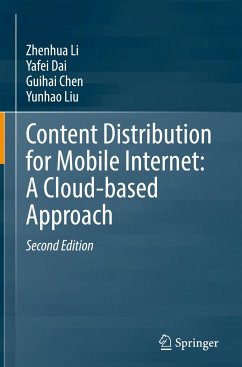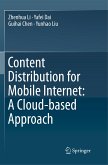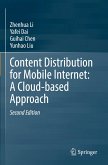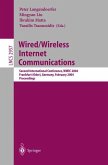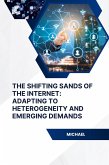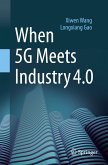Content distribution, i.e., distributing digital content from one node to another node or multiple nodes, is the most fundamental function of the Internet. Since Amazon's launch of EC2 in 2006 and Apple's release of the iPhone in 2007, Internet content distribution has shown a strong trend toward polarization. On the one hand, considerable investments have been made in creating heavyweight, integrated data centers ("heavy-cloud") all over the world, in order to achieve economies of scale and high flexibility/efficiency of content distribution. On the other hand, end-user devices ("light-end") have become increasingly lightweight, mobile and heterogeneous, creating new demands concerning traffic usage, energy consumption, bandwidth, latency, reliability, and/or the security of content distribution. Based on comprehensive real-world measurements at scale, we observe that existing content distribution techniques often perform poorly under the abovementioned new circumstances.
Motivated by the trend of "heavy-cloud vs. light-end," this book is dedicated to uncovering the root causes of today's mobile networking problems and designing innovative cloud-based solutions to practically address such problems. Our work has produced not only academic papers published in prestigious conference proceedings like SIGCOMM, NSDI, MobiCom and MobiSys, but also concrete effects on industrial systems such as Xiaomi Mobile, MIUI OS, Tencent App Store, Baidu PhoneGuard, and WiFi.com. A series of practical takeaways and easy-to-follow testimonials are provided to researchers and practitioners working in mobile networking and cloud computing. In addition, we have released as much code and data used in our research as possible to benefit the community.
Motivated by the trend of "heavy-cloud vs. light-end," this book is dedicated to uncovering the root causes of today's mobile networking problems and designing innovative cloud-based solutions to practically address such problems. Our work has produced not only academic papers published in prestigious conference proceedings like SIGCOMM, NSDI, MobiCom and MobiSys, but also concrete effects on industrial systems such as Xiaomi Mobile, MIUI OS, Tencent App Store, Baidu PhoneGuard, and WiFi.com. A series of practical takeaways and easy-to-follow testimonials are provided to researchers and practitioners working in mobile networking and cloud computing. In addition, we have released as much code and data used in our research as possible to benefit the community.

